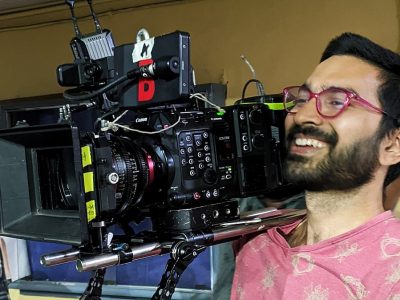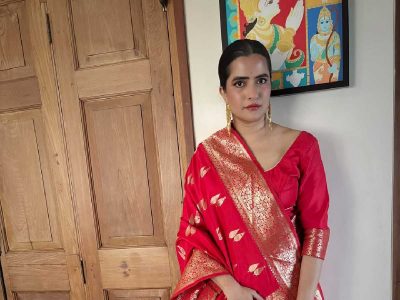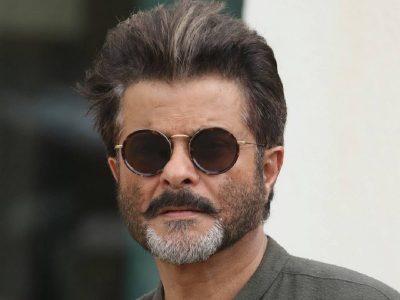Jabariya Jodi starring Siddharth Malhotra and Parineeti Chopra will hit multiplexes in August. Screenwriter Sanjeev K Jha, on whose concept the film is based, opens up about his journey in Bollywood so far
How did you start you journey as a screenwriter in Bollywood?
I studied Hindi literature at Jamia Milia Islamia and then worked in Delhi as a journalist. I always wanted to be a writer but because writing is a long process, I started looking for an Assistant Director’s job in Mumbai. Also, I was in need of a job to sustain myself. It was a phase where whichever project I worked on either stalled or did not work out. Then again, I came back to writing and started exploring various subjects.
I was wondering what would be the best subject to start with? And I realised it ought to be something which you have seen closely and are acquainted with from your own life experiences. For any writer, the best writing comes out when you know the characters you are penning down. So, that’s when I started developing the story of Jabariya Jodi. It will mark my debut as a screenwriter in the film industry.
How did you come up with the story idea for Jabariya Jodi? What sort of research was put into it?
I am from Bihar, and the story originates from there. I knew many people who used to kidnap grooms for forced marriages (also known colloquially as Pakadwa Shaadi) or were themselves kidnapped. I was also acquainted with a few couples who were married forcibly. As a writer, you need to interact with many people – be it criminals or just commoners. So, I wrote about them!
I started writing the script back in 2016. I travelled to many parts of Bihar – Patna, Muzaffarpur, Sarai – as part of my research. I got hold of various data – which revealed that oftentimes in Bihar more kidnapping has taken place for marriages, than for demanding a ransom. This is a very interesting fact!
Actually, dowry is a huge problem in Bihar. It gives the brides’ parents a tough time, and mostly they are not able to meet what the grooms’ family demands. Thus, this culture of Pakadwa Shaadi came about. For instance, a groom’s family might demand Rs 50 lakh, whereas the kidnapper will charge only Rs 10-20 lakh for the forced marriage to happen! My story captures this scenario.
Jabariya Jodi is a big budget feature starring Siddharth Malhotra and Parineeti Chopra. How did you get the opportunity to turn your screenplay into a commercial movie of such big scale?
It’s not that some big production house came up to me and asked for a story! What happens is when I write a screenplay, I am the person who decides whether it should be made into a commercial film or an artistic one. Every story has its own purpose. Like, in case of Jabariya Jodi – I was clear that I want to make it a ‘massy’ film. I did not want it to be restricted to a niche audience, because I wanted it to reach to a wider audience – both in India and outside. I wanted people to know about what pakadwa shaadi is.
Thus, I approached those kind of production houses – like the producers of Tanu weds Manu, or that film’s AD, then I went to Balaji – who took it up! And when stars like Siddharth Malhotra and Parineeti Chopra came on board, it became bigger. So, it was a conscious decision to make it into a full-fledged commercial film.
Tell us a little about the whole filming experience and how you were associated with it?
It was good. After Siddharth and Parineeti came on board, we went ahead with the production. A language coach was hired, so that the actors can get the lingo right. The shoot took place in Lucknow, in almost 75 days. The whole crew stayed there – from day one till the end.
And by doing that, I believe both the actors internalised the characters, the location, the people. It was fun, but it was a bit challenging as well because they were playing such rustic characters on-screen for the first time. Especially for Siddharth, who had never attempted such a portrayal – paan khana, ghamcha pehnna (chewing paan, slinging a towel) and adapting that Bihari attitude. Overall, the process was fun!
One thing I took care of while writing was not to stereotype the characters. People often do that with Bihari characters — talking like Lalu Yadav, having a shabby appearance — most of which comes off as mere mimicry. So, we consciously did not do all these and took Siddharth instead, who definitely looks like he’s from Bandra, to play a Bihari.
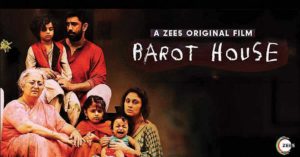
In a recent interview, you spoke about the condition of screenwriters in Bollywood and how they do not receive their due credit or respect. Please elaborate.
I stick to what I’ve said. No one is ready to pay the screenwriter, nor acknowledge him or give him recognition or involve him in the filming process. I believe writing is half of the filmmaking — so how can you not involve your writers in the process or treat him right?
Also, I’ve noticed many of the films do not even include the name of the screenwriters in the posters or in media releases. How will the media know if the production company themselves do not provide the writer’s name?
But not everyone’s alike. A few people are there in the industry who respect writers. Like the association between filmmaker Shoojit Sircar and writer Juhi Chaturvedi. Also, Karan Johar always releases the first poster of his film with writer’s name on it – which is an amazing thing. I respect him for this – as he’s motivating the writers who are the underlying foundation of cinema.
Removing a writer’s name from a film poster is disheartening. Imagine someone is writing a script for three years and then having to deal with this! It’s like removing the author’s name from the book cover and just mentioning the publishers’ name! It’s a really cheap and inferior thing to do!
So, when we, screenwriters start talking about these issues — it will be problematic for many people. Who are these people and why they have a problem with us, I don’t know but I’m trying to figure out.
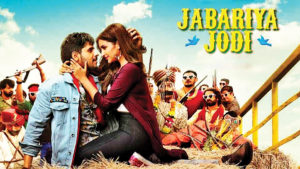
You’ve signed a digital film with ZEE5 – Barot House – for which you have written the screenplay. Tell us a little about it.
It will start streaming on Zee5 from August 7. It is a thriller, a genre which I tried for the first time. It is very interesting, inspired from a true crime story which took place in Bihar. But the story is set in Gujarat and some other states in India. It features Amit Sadh and Manjari Fadnavis. I don’t want to typecast my work; thus, wanted to tell different stories and create different characters. I cannot reveal much about the story now, but one thing I can say is that it has definitely something new to offer to the audience.
What project are you working on, apart from this?
I have written a Marathi film – the shooting of which has also taken place, editing is in process and it will probably release this year. It has been directed by Amol Gole, who has worked as Director of Photography (DOP) in films like Stanley ka Dabba, Hawa Hawai, among many. Plus, it has a beautiful song by Ajay Atul.


